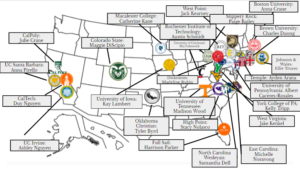The Senate Has Voted To Save Net Neutrality
May 17, 2018
In what seemed like a pipe dream back in November of 2017, the Senate voted on Wednesday to overturn the Federal Communications Commission’s rollback of Obama-era “net neutrality” regulations. For months, procedural red tape has delayed the full implementation of the FCC’s decision to drop Title II protections that prevent internet service providers from blocking or throttling online content. Last week, FCC Chairman Ajit Pai confirmed that the repeal of the 2015 Open Internet Order would go into effect on June 11th. But Democrats put forth a resolution to use its power under the Congressional Review Act (CRA) to review new regulations by federal agencies through an expedited legislative process.
Under the CRA, only a simple majority is needed to pass legislation. With Republican Senator John McCain currently hospitalized and all Democrats on board, only a single Republican needed to vote in favor of restoring net neutrality rules. However, Senators Susan Collins, John Kennedy, and Lisa Murkowski all broke from their GOP colleagues and ensured that the resolution passed.
Initial remarks this morning kicked off with Senate Majority Leader Mitch McConnell saying that “this resolution takes us in the wrong direction,” and insisting that it’s a partisan attempt to drum up a campaign issue. (That last part is actually true.) McConnell didn’t address any specifics about why he opposes the FCC net neutrality protections. Republican Senator Roger Wicker also voiced his opposition and expressed hope that senators would instead vote for watered-down legislation that Senator John Thune, a Republican who has received nearly $1 million in donations from the telecom industry, introduced on the floor today.
Democrats focused on rebutting falsehoods and highlighting specific issues that are affected by net neutrality. Senator Marie Cantwell knocked down the lie that net neutrality protections slowed down investment in networks. This conservative talking point has been the foundation of the argument against Title II classification for ISPs. Cantwell told the room: “In the year following the rule that went into place, the entire industry shows that the total capital expenditures increased by more than $550 million above the previous year’s investment. For example, in [its] 2017 earnings report, Comcast, the nation’s largest broadband provider, noted that its capital expenditures increased 7.5 percent—nine-billion dollars—and that it continued to make deployments on platforms like the X1 and wireless gateways. Likewise, AT&T spent $22 billion on capital investments of $20 billion from the previous year. In fact, 2016 represents the industry’s highest single year jump in broadband network investment since 1999.”
With all of that in mind, it’s only a matter of time before the House of Representatives decides whether to follow in the Senate’s footsteps of keeping net neutrality alive or not. Let’s all hope that they open their eyes and see to it that the right thing is done.




